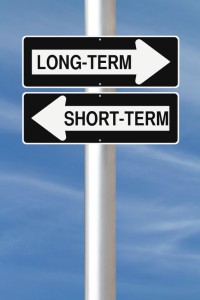Now that the 2015 general election has been and gone, David Kingman ponders what the outcome will mean for younger and future generations
After months of fevered speculation about the possibility of the 2015 general election producing a hung parliament or an unstable coalition government, the end result defied all the pre-election polls by producing a narrow overall Conservative majority.
Before the election took place, IF analysed each of the parties’ policies to see what they had to offer for younger and future generations. With this in mind, here are several possible impacts which the final results could have on intergenerational fairness:
Less debt for future generations…
The core tenet of the Conservative Party’s “long-term economic plan” is to close the deficit – the difference between what the government receives in revenue and what it spends – so that the government can start paying off the national debt. Under the Conservatives’ plans, they want to get the national debt falling as a percentage of GDP by next April, and hope that Britain will be producing a budget surplus by the end of the current parliament in the 2019–20 fiscal year. On balance, this is likely to be beneficial for future generations, who will inherit less of a financial burden from those of us who are around today, which should make them more financially secure.
…but higher spending cuts today
The other aspect of the Conservative Party’s economic strategy is that they intend to pursue higher spending cuts than the other parties over the next five years as their means of reducing the government’s deficit. This could be bad for younger and future generations, for two reasons. Firstly, as an analysis by the Institute for Fiscal Studies (IFS) showed, the Conservatives’ spending plans do not include borrowing to make investments in infrastructure projects and public services, so the physical legacy which we are handing on to the next generation could be allowed to deteriorate significantly. Secondly, the Conservatives’ plans call for somewhere between £33 and £50 billion worth of cuts to current spending, which the party has pledged will not come from pensions, healthcare or schools.
Particular controversy is likely to surround the £12 billion of welfare cuts which the Conservatives have pledged to make, as they have already promised not to do anything that will affect pensioners. This means the cuts they end up implementing are likely to affect young people, as suggested by a leaked document which showed the Conservatives were asking officials in the Department for Work and Pensions to produce estimates of how much money could be saved by barring under-25s from claiming housing benefit or incapacity benefit.
Will the pain inflicted on the younger members of today’s society ultimately be worthwhile if it means we pass a smaller burden on to generations who are as yet unborn? Only time will tell, but this appears to be a trade-off which the Conservative government is willing to make.
3) The future of the union?
One of the biggest questions to emerge from the 2015 general election is what the future of the political union between Scotland and the rest of the UK will be, following the SNP’s remarkable results.
This is an intergenerational question because it is a rare moment when decisions made by the people who are in power today are likely to have repercussions that last for centuries, given how unlikely it would be that a formal de-unification would ever be reversed (of course, the decision over whether Britain remains a member of the EU will be similarly epoch-making).
In a practical sense, the rise of the SNP has undeniably been beneficial for today’s young people in Scotland, as they benefit from being able to vote at 16 in elections to the Scottish parliament and free university tuition, and the SNP appears to have succeeded especially at galvanising younger members of the electorate. One of the most positive stories to emerge from the election was the success of Mhairi Black, a 20 year old who became the youngest MP elected since the 17th century by winning Paisley and Renfrewshire South, making her the youngest elected lawmaker in Britain.
If her success and that of the SNP more broadly leads to the other parties playing a closer interest to the role of young people in politics, then that could be the greatest legacy of the 2015 general election for younger and future generations.
